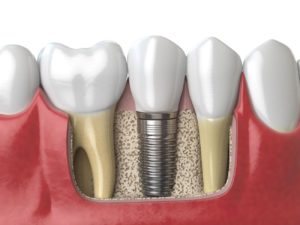Millions of adults suffer from tooth loss and experience difficulties with the look and feel of their smile in the aftermath. Missing teeth can leave gaps in your smile and hinder your ability to perform oral functions.
Your dentist can provide you with restorative devices like dental implants to replace missing teeth. You should seek treatment like this to avoid further complications that can stem from tooth loss, especially in your jaw. Read on to learn more about how missing teeth can affect the health of your jawbone and how your dentist can prevent this problem.

What Happens to the Jaw After Tooth Loss?
In a healthy smile, the teeth extend into a root below the gumline that reaches the jawbone. This tooth root stimulates the bone there, making sure it stays strong.
When you lose a tooth, the jaw no longer receives stimulation from a tooth root. In its absence, the jawbone begins to deteriorate. This can lead the remaining teeth to shift and the facial structure to sag. You cannot stop this effect from occurring on your own, so talk to your dentist about solutions to preserve your face, jaw, and smile in the wake of tooth loss.
How Can Restorative Dentistry Prevent Jawbone Loss?
Your dentist can offer a variety of tooth replacement solutions if you want to restore your smile after tooth loss. But if you want to protect your jawbone specifically, you should ask your dentist about dental implants.
A dental implant uses a titanium post anchor that a dentist surgically inserts into the jaw. The anchor fuses to the bone there for optimal support. Then the dentist secures the prosthetic teeth to an abutment above the gumline that attaches to this anchor.
This way, not only will patients find effective restoration of their oral function and smile appearance. They can see a replacement of the missing tooth root below the gumline too. Removable dentures cannot provide this benefit.
The anchor acts as stimulation for the jaw once again and stops degeneration of the bone. It can also encourage the regrowth of bone that may have already been lost.
Can My Jaw Support Dental Implants?
Though the benefits of implant dentistry are evident, not every patient can qualify for this treatment. In order to receive an anchor and have it fuse properly with the jaw, you will need enough healthy and intact jawbone. Implants can prevent bone loss in the jaw, but missing teeth may have already started this process.
If too much bone in the jaw has deteriorated, you cannot successfully support a dental implant. Your dentist can check the health of your jawbone through x-ray imaging taken during a consult.
They may suggest a bone graft surgery to add more structure to your jaw. After this heals, you might be able to sustain an implant without issue. If this is not feasible, your dentist may discuss alternative tooth replacement treatments with you.
